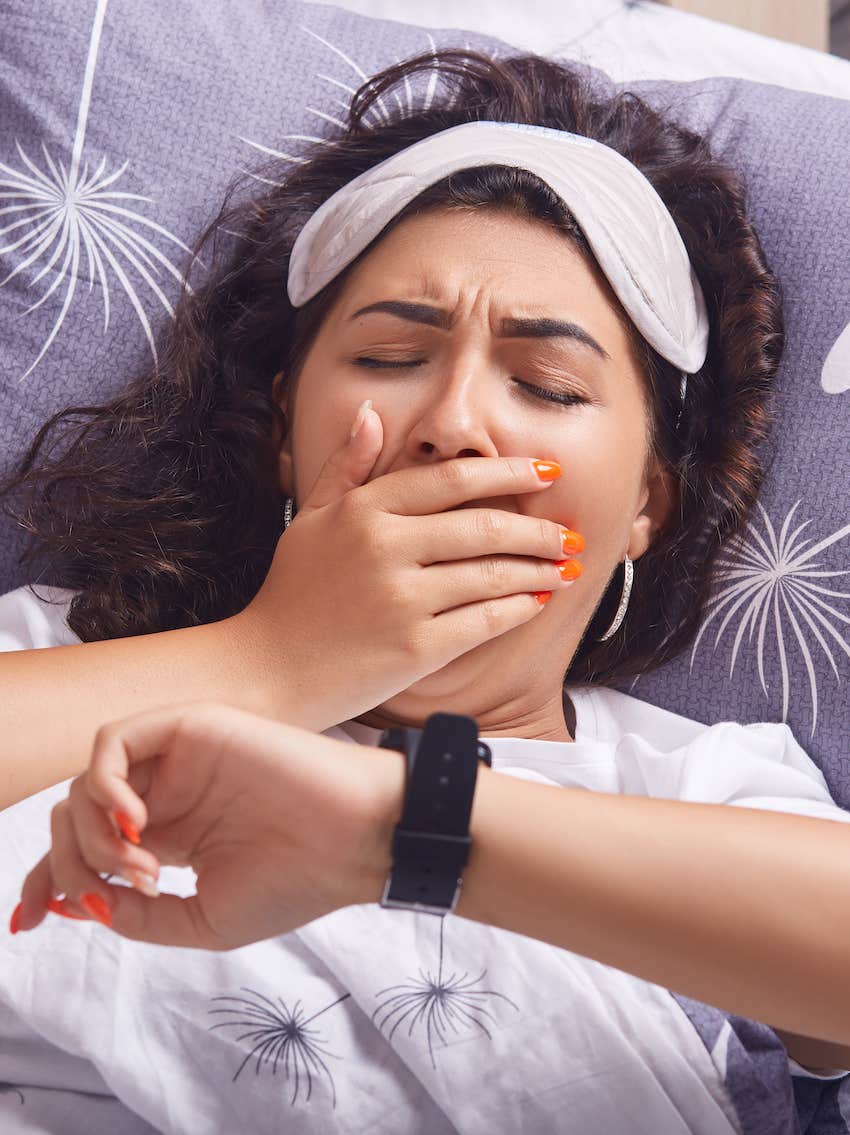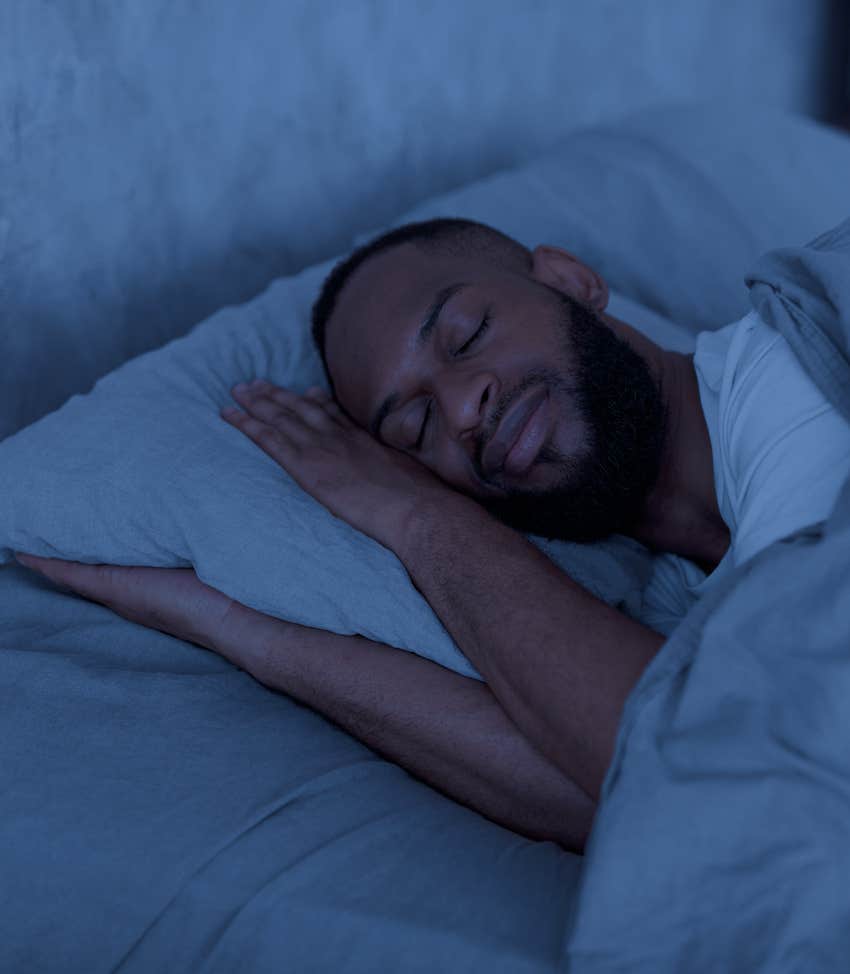The 7-Step Process For Fixing Almost All Your Sleep Problems
Send yourself to sleep camp without leaving your home.
 Lysenko Andrii | Shutterstock
Lysenko Andrii | Shutterstock Sleep deprivation causes irritability, relationship issues, depression, anxiety, weight gain, medical problems, cognitive deficits, impaired work performance, car crashes, and a host of other ills way beyond the toll it takes on physical beauty. Makeup will not solve these problems.
Why not send yourself to sleep camp?
In sleep camp you have daily activities, just like volleyball and swimming in summer camp. If you despised summer camp, you can think of it more like soccer or tennis camp where you're trying to improve a skill set and you know it's going to take dedication, practice, tweaking, and repetition.
The seven key elements of doing a 'sleep camp' at home
1. Start a sleep journal
In it, keep track of the time you go to bed and wake up, daily. Identify nights you awaken often or can't get back to sleep, and find the pattern. Is it every day you don't get enough sleep? Only some days? Which days?
2. Identify relevant behaviors and situations
Record all your habits, good and bad, that relate to sleep. In your journal include:
- Daytime habits. Record what and when you eat and drink (especially caffeine and alcohol). Note your use of nicotine, the amount of exercise you get, and naps you take, including the time of day.
- Sleep rituals. This is what you do before bed. Most people have a routine they follow that includes things like washing up, flossing and brushing teeth, reading, television, social media, prayer, phone calls to loved ones, and the like.
- Sleep environment. The noise level, amount of light, temperature, and disruptions in the bedroom like pets, kids, and partners.
- Stress. Any stress that you carry can adversely affect sleep.
- Other difficulties, like medical issues or taking a new medication.
- Daytime feeling. This is how you feel when you wake, and the status of your energy level, irritability, and mood during the day.
 StoryTime Studio via Shutterstock
StoryTime Studio via Shutterstock
3. After using your journal for a week, identify these problems
Problems include:
- Too much caffeine, nicotine, or alcohol.
- Caffeine, nicotine, alcohol, spicy food, liquids, or large meals too close to bedtime.
- Not enough exercise or exercising too close to bedtime.
- Watching or reading something highly activating before bed.
- Not getting to bed on time or not having a set time for bed.
- Naps interfere with sleep.
- Absence of a helpful bedtime ritual.
- Too much noise or light (including those LEDs).
- The ping of your smartphone, tablet, or computer summoning you.
- The bedroom feels too hot.
- Clock-watching and worrying about getting to sleep or getting back to sleep.
- Stomach problems, headaches, or other physical problems.
- Taking stressful calls, or responding to stressful texts or emails close to bedtime.
- Life stress.
4. Find some potential solutions
Solutions include:
- Work to change the daytime habits you've identified as problems.
- Set regular sleep and waking times and try to adhere to these religiously, especially early on in the change process. 7-8 hours of sleep is a good target for most adults.
- Eliminate naps unless your journal says they work.
- Improve your bedtime ritual so it's more relaxing, or return to one that worked in the past.
- Decrease activating activities.
- Reserve the bed (some suggest the bedroom) for sleep and physical intimacy and, if you must, reading or television, ONLY if they help you fall asleep.
- Don't work, game, use your computer in bed, or have exasperating conversations (live or virtual).
- Remove problems from your sleep environment, like notifications from your phone.
- Do not watch the clock or turn it over so you can't see the time.
- A cool but not frigid environment works for most. For the perimenopausal, keep it cool.
- Write down stressors or ideas you want to follow up on and set them aside to address tomorrow. Do this if you wake up during the night with things on your mind.
- Use a relaxation strategy to wind down before bed, like progressive relaxation, meditation, calming yoga poses, or a warm bath. Yes, even warm milk.
- Use the same strategies for relaxation if you wake up during the night.
- If you get out of bed to use the bathroom, keep the lights low.
- Address other difficulties like making appointments to resolve medical issues, or working with a coach or therapist to resolve stress.
 Prostock-studio via Shutterstock
Prostock-studio via Shutterstock
5. Implement the solutions after noting them in your sleep journal
See how things go for another week. Continue to keep track of results in your journal. Evaluate improvement at the end of the week by consulting your journal. Your notes on the way you feel during the day will tell you if your plan is working. Identify the solutions that work and those that do not.
6. Revise your plan as appropriate
Continue with the effective strategies for another week and add new ones if you think they're warranted. At the end of the week, evaluate your improvement. You can repeatedly revise your plan as many times as it takes to get you the sleep you want. If you feel you're not improving enough, obtain a referral from your primary care physician for a sleep specialist.
7. Maintain your gains by continuing to journal for at least a month
Keep your journal for future reference should problems resurface. It's often good to remind yourself of what worked and what didn't.
If you've been to summer camp, you know how much more you appreciate the comforts of home after the camp experience. If your kids have been to camp, you probably appreciate them more when they return. You'll find the same holds for sleep camp.
You and others will welcome the return of a well-rested colleague, partner, parent, or friend. And let's not forget, you'll be more beautiful, too.
Judith Tutin, Ph.D., ACC, is a licensed psychologist and certified life coach. She shares more work on her website, where she brings more fun and wellness to your life.

